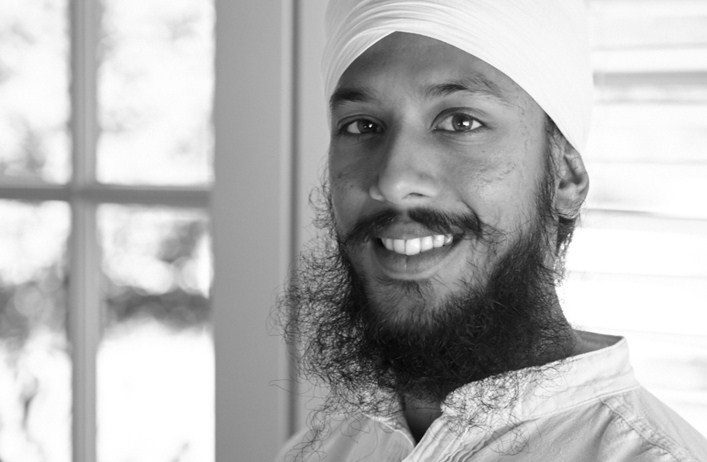No products in the cart.
by Nikhil Ramburn and Sat Bir Singh Khalsa, Ph.D

The prostate gland is part of the male reproductive system and is located just below the bladder and in front of the rectum. Cancer of the prostate manifests as an abnormal proliferation of cells. Although some men do not have any symptoms, prostate cancer is typically associated with painful or burning urination, blood in the urine or semen, difficulty emptying the bladder, and painful ejaculation. While researchers do not know the exact causes of prostate cancer, they have determined that certain genetic changes, whether inherited or acquired during a person’s lifetime, contribute to the disease. According to the American Cancer Society, a high consumption of red meat or high fat dairy products slightly increases the risk, while other risk factors include radiation or chemical exposure, older age (typically over 40), and a family history of prostate cancer. Prostate cancer is the second most common cancer in American men after skin cancer and is the second leading cause of cancer death with about 1 in 41 men predicted to die from this disease.
Although there are now a variety of conventional treatments for prostate cancer including surgeries, radiation, hormone therapy, and chemotherapy among others, reports suggest that 25-50 percent of prostate cancer patients use at least one complementary and integrative medicine modality. Acupuncture is popular and effective among patients who experience hot flashes as a side-effect of androgen-deprivation therapy for prostate cancer. A 2013 review of the literature on exercise and cancer found that populations who were more active had less side effects from anticancer therapy and greater chances of recovery. Yoga offers many of the benefits of exercise, but in addition, yoga is likely to also better improve stress, mood, pain perception, and self-efficacy in patients with cancer. Indeed, research has shown that yoga can improve quality of life and sleep-related outcomes in patients with lymphoma and breast cancer.
The 8-week Mindfulness Based Stress Reduction program, which incorporates meditation, body scan, and gentle yoga, in an early pilot study on 10 patients with early stage prostate cancer and 59 patients with breast cancer, showed significant improvements in overall quality of life scores, symptoms of stress, and sleep quality. The improvements in quality of life were associated with a decrease in activation of the stress hormone – cortisol. A follow-up study reported significant improvements at 6 and 12 months, showing that improvements in stress were maintained and that cortisol levels continued to decrease systematically over the course of the follow-up. The patients’ immune systems were likewise improved with a reduction in levels of pro-inflammatory cytokines.
In addition to stress, epidemiological data suggests that lifestyle choices such as diet may play an important role in cancer prevention. In 2003, in order to elucidate the effect of diet on prostate cancer, the lab of Dr. Dean Ornish (a pioneer of plant-based dietary intervention) conducted the Prostate Cancer Lifestyle Trial (PCLT), a randomized controlled trial (RCT), in which 93 men were assigned to either a control group or a vegan diet intervention group. The diet consisted of low-fat foods, legumes (including soy), whole grains, fruits and vegetables. In addition, the patients participated in stress management, psychosocial group support, and exercise programs including gentle yoga-based stretching, breathing, and meditation – this could therefore be considered a yoga lifestyle program. Adherence by intervention group participants was excellent at greater than 80 percent. They had a 4 percent decrease in prostate specific antigen (PSA, a measure of disease severity) whereas the non-intervention control patients had a 6 percent increase in PSA and 6 of those patients had to resort to conventional cancer treatment. Furthermore, no patients in the lifestyle intervention group needed radiation, surgery, or androgen deprivation therapy. Finally, when researchers exposed in vitro cancer cells to the serum of the lifestyle group patients, they observed 8 times more cancer growth inhibition than the control group serum, suggesting that this treatment approach had significant effects at the cellular and molecular level.
Cancer diagnosis and treatment is associated with significant psychosocial problems including stress, anxiety, denial, and exacerbated conflict with partners that needs to be addressed. Interviews with 44 of the participants in the PCLT group of the study after one year found that the lifestyle change intervention resulted in greater overall optimism and hope. In addition, patients experienced greater emotional availability and decreased conflict with their partners. Subsequent follow-up data also revealed significantly improved lifestyle behaviors compared with controls resulting in enhanced health-related quality of life (HR-QOL) scores and decreased stress. After 2 years, 27 percent of control group patients had reverted to conventional cancer treatment compared to less than 5 percent of the lifestyle group patients. These encouraging findings suggest that early-stage prostate cancer patients may be able to avoid or delay conventional treatment for at least 2 years by making changes in their diet and lifestyle.
Although the PCLT improvements in quality of life and mood and in the inhibition of cancer growth are important, molecular and biological outcomes, as strong objective outcome measures, are very worthy of analysis. Telomeres, which are protective DNA–protein complexes at the end chromosomes tend to shorten with disease and serve as a prognostic marker of risk, progression, and mortality in many types of cancer. In a pilot study funded by the US Department of Defense, Dr. Ornish and colleagues looked at the effects of a 3-month comprehensive lifestyle modification (with similar dietary and yoga-related practices to the PCLT) on 30 men with early stage prostate cancer. They found significantly increased levels of telomerase (the enzyme that counteracts telomere shortening). The researchers also identified significant modulation of biological processes that have critical roles in tumor growth and concluded that the intervention may change gene expression in the prostate. Remarkably, in the 5-year follow-up to this study, the relative telomere length in the experimental group continued increasing from baseline but decreased in the control group, therefore suggesting that long-term adherence to lifestyle changes can reverse damage to chromosomes.
The first study to examine the feasibility and benefit of a yoga program for prostate cancer survivors and their support persons was conducted by researchers at the University of Calgary in Canada. The yoga sessions ran weekly for 7 weeks and were 75 minutes in length. Participants were guided through gentle breathing, increasingly challenging yoga postures (as their flexibility improved over the 7 weeks) and 15 minutes of final relaxation in Shavasana pose. All the study participants, including their care-givers, reported significant improvements with regard to stress, fatigue, and mood after yoga. The researchers concluded that yoga therapy for prostate cancer survivors is a feasible intervention due to the high program adherence rate and the acute benefits for all participants.
In another landmark study, researchers from Neha Vapiwala’s lab at the University of Pennsylvania looked at the feasibility of an intensive yoga intervention for prostate cancer patients receiving outpatient radiotherapy. Although 18 of the 45 patients who started the program were unable to attend the requisite minimum number of yoga classes due to conflict with their radiation treatment times and the yoga class schedule, 12 of the remaining 27 participants attended over 50 percent of the classes. The results revealed reassuringly stable scores in erectile dysfunction, urinary incontinence, and quality of life. This prompted the researchers to conclude that a structured yoga intervention of twice-weekly classes was feasible for the cancer patients during a 6-9 week course of outpatient radiotherapy. They then conducted an RCT in which experimental group participants received twice-weekly yoga interventions over the 6- to 9-week courses of radiation therapy. Throughout the treatment, the yoga cohort reported significantly less fatigue than the controls. The sexual health scores and QOL emotional scores were also significantly higher in the yoga group.
In summary, these encouraging albeit preliminary findings suggest that yoga may be a viable complementary treatment for prostate cancer patients. The findings support the need for validation with larger cohorts and methods such as electronic activity tracking to better understand the underlying biochemical changes induced by the yoga practices. Future studies should address the previous limitations of attrition, unaccounted comorbid factors, bias, and small sample sizes. Future trials can also help us better understand the barriers to continued participation in yoga for prostate cancer survivors.

Nikhil Rayburn grew up practicing yoga under mango trees in the tropics. He is a certified Kundalini Yoga teacher and has taught yoga to children and adults in Vermont, New Mexico, Connecticut, India, France, and Mauritius. He is a regular contributor to the Kundalini Research Institute newsletter and explores current yoga research.

Sat Bir Singh Khalsa, Ph.D. is the KRI Director of Research, Research Director for the Kripalu Center for Yoga & Health, and Assistant Professor of Medicine at Harvard Medical School. He has practiced a Kundalini Yoga lifestyle since 1973 and is a KRI certified Kundalini Yoga instructor. He has conducted research on yoga for insomnia, stress, anxiety disorders, and yoga in public schools. He is editor in chief of the International Journal of Yoga Therapy and The Principles and Practice of Yoga in Health Care and author of the Harvard Medical School ebook Your Brain on Yoga.
Teacher
KRI is a non-profit organization that holds the teachings of Yogi Bhajan and provides accessible and relevant resources to teachers and students of Kundalini Yoga.


 Français
Français Deutsch
Deutsch Italiano
Italiano Português
Português Español
Español 简体中文
简体中文
More Related Blogs